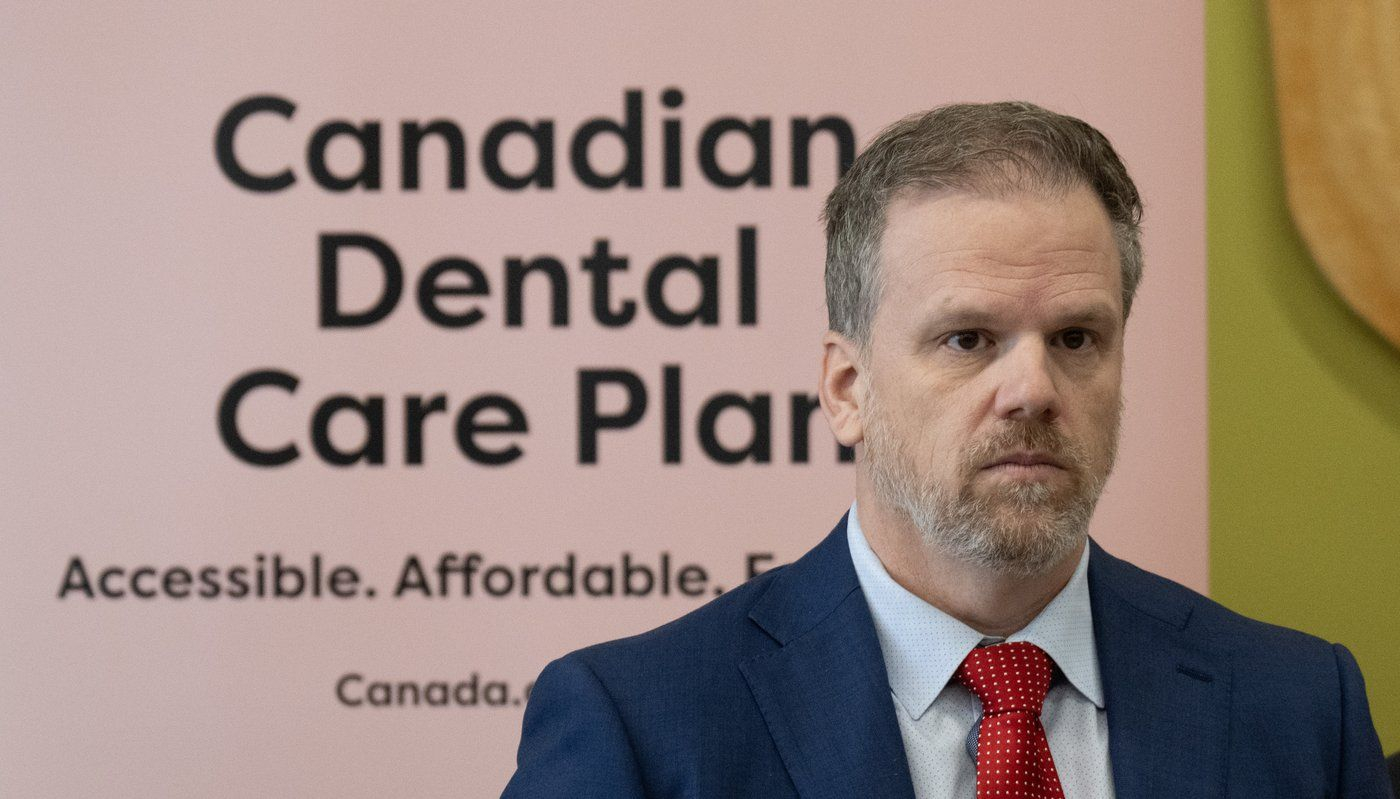Health Minister Mark Holland is on tour to sell Canadian dentists and hygienists on the new federal dental care plan as concerns mount about what the government plans to pay providers for their services.
The government started enrolling seniors to the dental-coverage plan late last year as part of a new program to deliver dental benefits directly to people who don't currently have insurance.
The first people enrolled in the program are expected to be able to start getting their teeth cleaned and treated in May, but only if they have access to an oral-health provider who has signed up to provide the care.
Approximately 61 per cent of dentists surveyed by their provincial associations earlier this month said they weren't planning to sign up for the program based on the information they had at the time, the Canadian Dental Association said.
Dental and hygienist associations support the aims of the program, but balked at the fee guides the federal government released last month, which pay out less than is recommended by provincial and territorial guides.
They've also raised concerns about the "terms and conditions," including administrative burdens on staff and the fact that oral-health providers need to sign on to the program to provide care.
There are roughly 16,000 dental offices in Canada, the Canadian Dental Association said. The program also needs oral surgeons, denturists and independent hygienists offices to register.
The government won't say how many have signed up since registration began on March 11.
"We need them to participate in order for this to be successful," said Holland in an interview Friday.
Holland was in Richmond Hill, Ont. meeting with various providers as the first stop in a Canada-wide tour seeking to bring dentists and other care providers onside.
He wants to reassure them that the program will be as smooth for them as dealing with any other private insurance company, he said, and added that the negotiation about fees is ongoing.
"I'm committed to really working closely with them and explaining this is iterative, where it's not going to be perfect out of the gate," Holland said.
But getting it right from the beginning is important for patients as well as dentists and other providers, said Dr. Heather Carr, president of the Canadian Dental Association.
"I am concerned that this plan was born of politics, not policy. And I fear that if it's rushed, that it won't be so simple to get it right," she said.
"It has to at least have the very simple principles that will help us get those patients the care they need."
The program is the result of the political pact the Liberals signed with the NDP two years ago, and will eventually be available to any uninsured person with an annual family income under $90,000 per year.
The government is slowly rolling out eligibility, starting with seniors, before moving on to children under the age of 18 and people who receive the disability tax credit.
While most routine services will be covered as soon as the government starts accepting claims, anything that requires pre-approval will have to wait for six months while the program gets up and running.
So far 1.5 million seniors have signed up to the program, but Holland says the government has not set a target for how many dentists and hygienists and other oral health providers are needed to actually perform the care.
"Even if every single provider signed up, there are still people who are just too distant to a dentist to be able to get care," Holland said, speaking specifically about people who live in remote, rural communities.
"So this isn't going to be everybody getting coverage immediately right out of the gate."
The government set aside $250 million over three years, starting in 2025 to improve access to oral-health care, especially in remote areas.
Carr said it will be up to each individual dentist to make their own decision about whether to sign up but she hasn't done so herself yet because she has too many unanswered questions.
"At this point in time, I find it very complicated and I'm very concerned about the terms and conditions," she said.
Dentists and hygienists' associations raised concerns about the burden on patients if the government doesn't reimburse providers for the actual cost of delivering the service.
"Patients have to be aware that in many cases, they're going to have to pay out of pocket for treatment," said Carr.
Many other dentists may choose to opt out entirely, which will lead to fewer providers and less choice for patients, she said.
Holland defended the proposed reimbursements under the program as a balance between what is fair to providers and what is fair to taxpayers.
Most of the services listed are within 90 per cent of the suggested provincial fee guides, which are prepared by professional provider associations each year, Holland said.
There are some services that the federal government only plans to pay between 70 and 80 per cent of the suggested fees but he said they're not the most essential services.
"They're sort of in the nice to do category, not the essential medicine category," Holland said, though his office was not able to provide an example by press time.
The success of the program should be measured in progress, not perfection, he said.
"Every patient that gets seen, every provider that participates is a victory towards providing good oral health for our entire population."
This report by The Canadian Press was first published March 25, 2024.




Comments